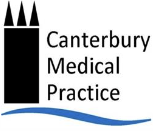Physiotherapy
Physiotherapists deal with human function and movement and help people to achieve their full physical potential. They take an holistic approach to promote, maintain and restore well-being. Physiotherapists are medically trained to diagnose and treat a wide range of physical problems. Your treatment might include massage and mobilization as well as exercise designed to strengthen your body. Physiotherapy is tailored to individual needs to reduce pain and maximize movement and function.
Osteopathy
Osteopathy is an established and recognised system of diagnosis and treatment that lays its main emphasis on the structural integrity of the body. It recognises that much of the pain and disability we suffer stems from abnormalities in the function of the body as well as damage caused by disease.
Osteopathy uses many of the diagnostic procedures used in conventional medicine, but its main strength lies in the holistic way the person is assessed from a mechanical, postural and psycho emotional perspective.
Osteopaths use their hands to carry out a variety of manipulative techniques. These may include muscle and connective tissue stretching, rhythmic joint articulations, high velocity thrust techniques to improve the mobility of joints, or gentle releasing techniques, such as cranial osteopathy.
Acupuncture
Acupuncture is a form of therapy in which fine needles are inserted into specific points of the body. It is used mainly for pain relief in musculoskeletal conditions.
The benefits of acupuncture include pain relief, relaxation of muscle spasm, an anti-inflammatory effect, improved sleep patterns, improved well-being and increased energy levels.
Acupuncture generally has a cumulative effect and you might not notice improvement until you have had 2 or 3 sessions. You should not be concerned if you experience some aching or a tingly sensation which sometimes continues for a short period after treatment.

